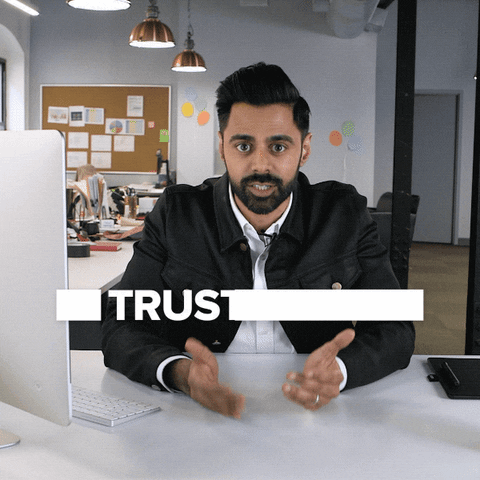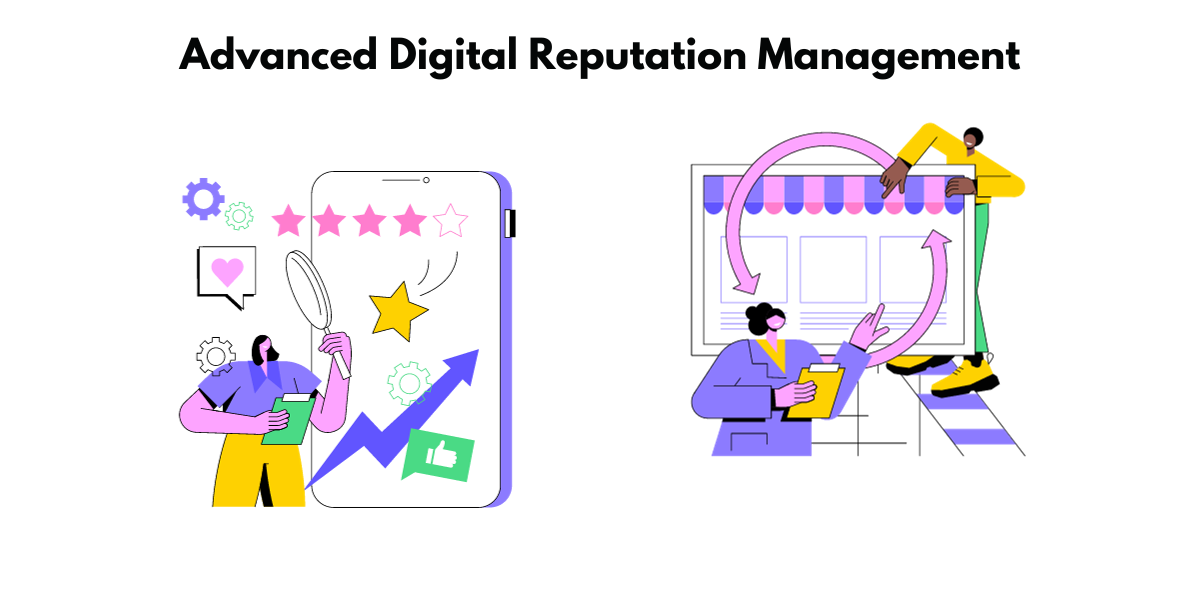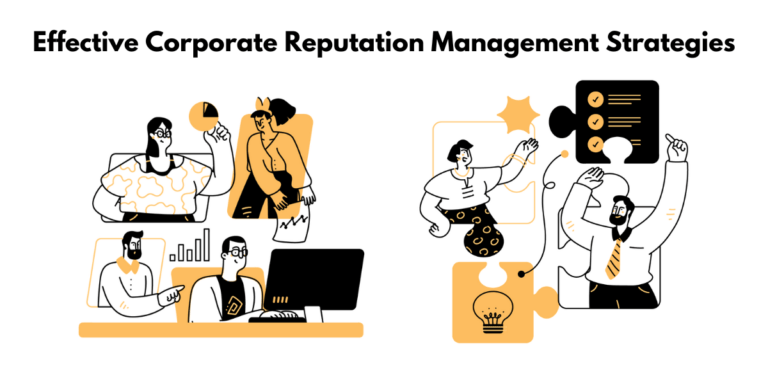Navigating the Virtual Landscape of Online Credibility
Understanding the Importance of a Solid Online Reputation
Online reputation is not just an adjunct to your real-world presence; it’s a pivotal cornerstone of your identity or brand in the modern digital landscape. This intangible asset has the power to shape perceptions and influence the decisions of clients, employers, and partners alike. With 97% of consumers finding local business info on the web, according to statistics from SEO Tribunal, neglecting your online reputation can directly impact your success.
The Evolving Challenges to Maintaining Digital Trust
As the internet continues to evolve, businesses face mounting challenges in maintaining digital trust. In the era of social media, a single negative comment can go viral and tarnish a brand’s image almost instantly. The constantly changing algorithms of search engines also affect how content is ranked, potentially bringing negative reviews to the forefront. Moreover, cybersecurity threats such as data breaches can rapidly erode consumer confidence.
Another layer of complexity is added by the human factor—our natural inclination towards sensational or controversial information. Despite technological advancements, online reputation mismatches remain prevalent because they feed on human biases and curiosity. It’s not the technology that amplifies negative content; it’s users’ engagement with it that does. According to Danielle Fallon-O’Leary, a Staff Writer at business.com, Google and other search engines prioritize content that reflects what users seem to want—often juicy gossip and negative reviews.

Comprehensive Strategies for Enhancing Your Online Presence
Conducting Thorough Audits and Monitoring Brand Mentions
A diligent approach to online reputation begins with a meticulous audit and continuous monitoring of brand mentions. This involves examining all digital footprints, including your website, social profiles, review sites, and anywhere your brand may appear or be discussed online. Audits should assess both the quality and sentiment of content associated with your business.
Once the current status of your online presence is established, it’s vital to set up systems for ongoing monitoring. Mention, a tool that facilitates brand monitoring and social listening, is exemplary in this domain. It allows for tracking over a billion sources daily, including social media, forums, and blogs. Mention’s Boolean alerts enable you to hone in on your brand mentions, providing a comprehensive view of your digital reputation and allowing for prompt responses to any discourse related to your brand.

Utilizing SEO Tactics to Shape Your Reputation Narrative
Search Engine Optimization (SEO) is not just about improving website traffic; it’s a critical component in shaping your brand’s online reputation narrative. With robust SEO strategies, businesses can influence how their brand is perceived by managing the visibility of certain pages in search engine results. SEO tactics help ensure that positive content about your company ranks higher, overshadowing less flattering or rogue content.
Strategic keyword research is vital. Identifying the terms people use to find your business or services allows you to tailor content that aligns with those searches. By effectively targeting such keywords in your web content, you can help control the narrative surrounding your brand.
Content creation plays a significant role in SEO-centric reputation management. Producing high-quality, valuable, and compelling content helps in earning organic backlinks from other reputable sites, further solidifying your credibility in the digital space.
Besides on-site content, ensuring that your meta descriptions, titles, and URLs are optimized can impact how snippets of your content appear in search results. These elements act as a first impression and can influence whether users view your brand positively.
Another rarely discussed tip is to leverage the “negative space” in SEO – that is, to identify and address any negative search queries associated with your brand. This involves creating content that addresses concerns head-on in a constructive manner. Handling negative questions transparently and effectively can convert a potential issue into an opportunity to showcase the company’s commitment to transparency and customer service.
Integrating Advanced Tools in Reputation Management
Leveraging AI and Automation for Real-Time Alerts
Utilizing technology in online reputation management has become more sophisticated with the advent of Artificial Intelligence (AI) and automation. These tools can provide real-time alerts, enabling businesses to be more responsive and proactive in managing their digital presence.
AI-powered systems can scan the web for mentions, reviews, or content relating to a brand across various platforms, from social media to news outlets. For instance, a sentiment analysis tool infused with AI capabilities can dissect the tone and emotion behind customer reviews and social media comments, allowing businesses to understand public sentiment. This can illuminate patterns that might require strategic PR responses or shifts in business operations.

Automation platforms enable the creation of detailed alerts based on specific keywords, phrases, or topics related to your brand. This ensures that businesses receive immediate notification of any mention that could impact their reputation. Unlike Google Alerts, which might offer a basic rundown of mentions, high-end reputation management solutions dive deeper, providing nuanced insights into context and sentiment.
Employing Analytics to Gauge Reputation Impact
In the data-driven world of digital marketing, utilizing analytics is essential for measuring various aspects of a business’s online reputation. The raw sentiment expressed in customer feedback and online discussions is translated into actionable insights through the power of analytics tools. By systematically analyzing key performance indicators (KPIs), businesses can gauge the impact of their reputation management efforts and adjust their strategies accordingly.
Financial and Sales Performance: Using tools like Google Analytics, companies can track the correlation between online reputation metrics and financial outcomes. For instance, they can monitor fluctuations in sales after receiving a positive or negative review or measure the increase in website visits following a well-received PR campaign.
Brand or Customer Loyalty: Loyal customers are often vocal advocates for a brand. Tools like Net Promoter Score (NPS) surveys help measure customer loyalty, giving businesses insight into the likelihood of customers recommending their brand to others, which contributes to their online reputation.
Net Promoter Score (NPS): NPS is a widely recognized metric for assessing how willing customers are to recommend a brand. An increase in the NPS can often be linked to a favorable reputation, while a decline calls for a closer look at potential reputational issues.
Customer Lifetime Value (CLV): Tracking CLV can illuminate the relationship between long-term customer value and reputation. Customers who perceive a brand positively may contribute to a higher CLV, indicating a positive reputation impact.
Repeat Purchase Rate: Analytics platforms can help track the rate at which customers return to make additional purchases. Repeat business can be a testament to a company’s good reputation.
Employee Satisfaction: Companies with high employee satisfaction often enjoy a good reputation, as happy employees can be enthusiastic brand ambassadors. Tools like Glassdoor offer insights into employee sentiment, which can directly influence public perception.
Stakeholder Surveys: Surveys conducted among stakeholders, including partners, investors, and suppliers, can provide a different dimension of reputation insights that relate to the business’s operational integrity and market position.
Social Media Reach and Sentiment Analysis: Tracking tools like Hootsuite or Sprout Social provide businesses with analytics around their social media outreach and the sentiment of the engagement they receive. These platforms can track shares, likes, and mentions, whilealso applying AI to discern the sentiment behind those interactions. This dual approach informs businesses not just about the size of their reach but about the quality of their engagement.
Share of Voice (SOV): Share of voice reflects how much of the online conversation within your industry or niche mentions your brand compared to competitors. Using tools like BrandWatch or SEMrush can help assess SOV, which can indicate your market influence and, by extension, reputation.
Sentiment Analysis: Companies use sentiment analysis tools to sift through online chatter and determine the tone of the conversation about their brand. This analysis can help identify when sentiments shift and the reasons behind these changes.
For an organization to truly understand the full scope of their online reputation, these metrics need to be tailored to the unique objectives and challenges of the business. Integrating this quantitative data with qualitative assessment, such as customer feedback and review content, supports a holistic approach to managing online reputation.

Addressing Negative Feedback Effectively
Crafting Customized Responses to Online Criticism
Responding effectively to online criticism is pivotal in the management of a brand’s reputation. Customized responses demonstrate that a business is genuinely engaged and values customer feedback, whether positive or negative.
Responses to criticism must be crafted with care, ensuring that the tone and content align with the brand’s communication style. The ultimate goal is to show that your business is committed to continuous improvement and values customer satisfaction. Recognizing criticism as an opportunity for growth can transform a negative into a powerful catalyst for building trust and credibility.
Turning Setbacks into Opportunities for Growth
The digital age has provided a platform for every voice, and inevitably some of those voices will express dissatisfaction with your brand. However, within each setback lurks an opportunity for growth. Here’s how to convert potentially damaging feedback into a catalyst for improvement:
Embrace Transparency: Show your customers that their voices are heard and valued by responding publicly to criticism. This not only reveals a willingness to engage but also provides a public record of your response and subsequent actions.
Strengthen Customer Service: Use the insights gained from negative feedback to pinpoint areas of customer service that require enhancement or additional training.
Innovate Your Offerings: Criticism often highlights weaknesses in products or services. Take this as an opportunity to innovate and refine your offerings.
Build Trust: Swiftly and sincerely addressing criticism shows current and potential customers that you’re committed to accountability and customer satisfaction.
A study by Khoros in 2022 demonstrates the potential in this approach, finding that 83% of customers say they feel more loyal to brands that respond to and resolve their complaints. A proactive approach to setbacks not only mitigates damage but can often enhance a brand’s standing in the eyes of consumers. By seizing these moments as opportunities for improvement and engagement, setbacks can be transformed into pivotal growth experiences.

Tapping into Expertise: When to Seek Professional Reputation Services
Deciphering the Complex Layers of ORM Services
Online Reputation Management (ORM) services offer multifaceted solutions to help businesses address the challenges of the digital reputation landscape. Understanding the layers of these services is essential to customize an ORM strategy that best fits your business needs.
Monitoring Services: ORM begins with vigilant monitoring across the web, from social media to review sites and beyond. These services alert businesses to what is being said about them online in real time.
Search Engine Optimization (SEO): ORM services often include comprehensive SEO strategies to ensure positive content about your business ranks higher in search results, which can push down less favorable content.
Content Creation and Management: Crafting compelling content that promotes your brand’s message is crucial. ORM services can include creating blogs, articles, social media posts, and more that align with and enhance your business values.
Social Media Management: Managing your presence on social networking sites effectively is a key focus to maintain a positive image and engage with customers in a meaningful way.
Review Management: Professional ORM services often include strategies to garner positive reviews and address negative feedback adeptly.
Crisis Management: In the event of a reputational crisis, having a team that can swiftly execute damage control strategies is indispensable.
Reporting and Analytics: ORM involves tracking and analyzing online activity around your brand, enabling you to understand the impact of your reputation management efforts over time.
Consulting Services: Some providers offer expert consulting to advise on best practices, policies, and strategies tailored to specific business needs and objectives.
By decoding these layers and understanding the specific tools and services that fit into the broader scheme of ORM, businesses can craft a bespoke strategy that catively caters to their individual goals. This strategic insight is crucial because, as Benjamin Franklin famously stated in the context of preparedness and prevention, “An ounce of prevention is worth a pound of cure,” — a concept that translates perfectly into the realm of managing online reputation.
Evaluating the ROI on Reputation Management Investment
Investing in Online Reputation Management (ORM) services requires careful calculation to understand the potential Return on Investment (ROI). Evaluating ORM investment boils down to a cost-benefit analysis where the impact on sales, customer trust, and brand equity is weighed against the expenditure on ORM tools and services.
It is important to note that while quantitative metrics are indispensable, qualitative factors—like enhanced customer trust and stronger brand loyalty—should also be weighed into the ROI equation. ORM can lead to a virtuous cycle where improved reputation attracts better talent, partnerships, and investment opportunities, which in turn further enhance the reputation, a concept supported by Harvard Business School’s Project on Managing the Future of Work.

FAQ: Mastering the Art of Online Reputation Management
Is Online Reputation Management Crucial for My Business?
Absolutely, online reputation management (ORM) is crucial for any business in the current digital landscape. Reputation has a profound impact on customer decisions and company success. Studies indicate that almost 60% of consumers in the U.S. would avoid buying from a brand that appears untrustworthy, highlighting the link between perception and purchasing behavior.
In an age where digital presence is inextricably linked to overall brand health, ORM should be an integral part of your overarching business strategy. Ensuring that your online footprint — from social media to customer review sites — is well-cared for is not just good practice; it’s essential for survival and growth in the information economy.
Can I Repair a Damaged Online Reputation, and How Long Does It Take?
Repairing a damaged online reputation is possible, but it is a nuanced and often time-consuming process. The time frame for repairing an online reputation varies significantly depending on the nature of the damage, the strategies implemented, and the specific goals of the reputation management plan. It can take anywhere from a few months to a year or more.
Moreover, it’s important to set realistic expectations and understand that some elements, such as search engine algorithms and the viral nature of the internet, are beyond direct control. Patience, persistence, and a well-crafted strategy are key to effectively repairing a damaged online reputation.
What Sets Apart Advanced Reputation Management Solutions From Basic Practices?
Advanced reputation management solutions offer a significant upgrade from basic ORM practices through a combination of sophisticated technology, strategic depth, and analytical rigor. In essence, advanced ORM involves a more holistic, tailored approach that looks beyond basic monitoring and suppression tactics. It encompasses a proactive, strategic, and technology-driven methodology to safeguard and enhance a brand’s online standing.
By engaging with the nuances of a brand’s online narrative, advanced ORM solutions can more effectively manage complex reputational challenges and turn potential negative situations into opportunities for growth and engagement. This degree of sophistication is becoming increasingly important as the digital landscape evolves and becomes more competitive.
- Unlocking Growth: The Power of Customer Experience Analytics in Boosting Retention and Driving Business Success - June 3, 2024
- Online Credibility: Advanced Digital Reputation Management Solutions - January 11, 2024
- 8 Reasons Why You Should Get Review Management Services for Your Business - June 12, 2023







